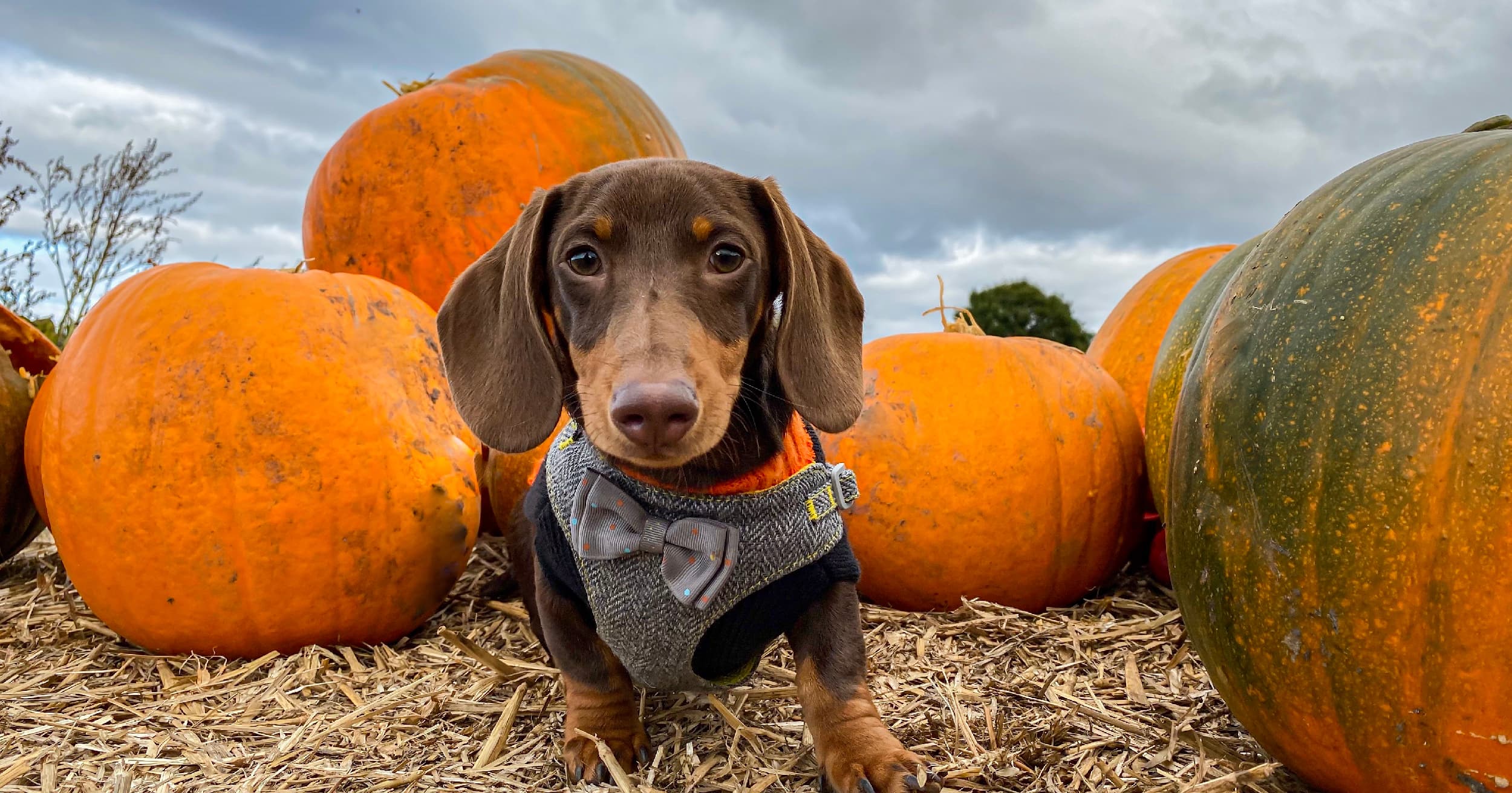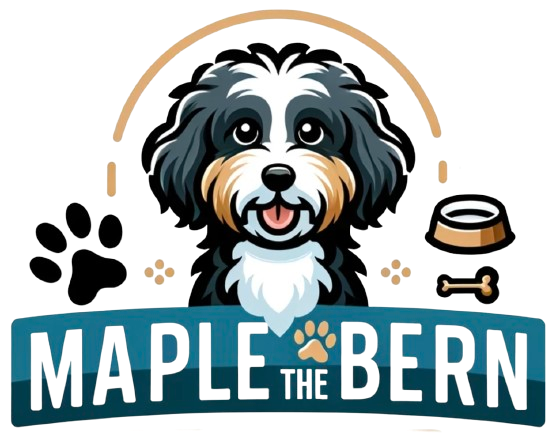
Welcome to our Peculiar Pet Facts series, where we investigate the oddities of our pets and explore the science behind them.
It’s the spookiest time of the year. The neighborhood is full of eerie ghosts, cackling witches and… candy. It’s a fun holiday for people, but for your pet, there are many scary things lurking in Halloween’s shadow. Here are some peculiar Halloween-related pet facts that are helpful to know during this haunting holiday.
Pumpkin Leads as Most Popular Pet Costume
According to a National Retail Federation survey, one in five people planned on dressing their pet in a costume for Halloween in 2021. The most popular costume was a pumpkin, followed by a hot dog, superhero, cat and bumblebee. Other costumes making the list included a ghost, bat, lion, dog, witch, devil and pirate.
If you’re among the roughly 20 percent of people who do dress up their pets for Halloween, it’s important to make sure your pet is supervised at all times and is safe and comfortable in their costume. They may look cute, but are they comfy? Or are they itching and scratching to take it off?
Make sure the costume isn’t too loose or too tight, that it allows your pet to move and breathe naturally and doesn’t obstruct their vision or hearing. There should be plenty of clearance for when they need to go potty, and the costume shouldn’t have any dangling bits that are tempting to chew, potentially creating choking or obstruction hazards. Considering all this, it may be better to take a quick photo and then switch the costume out for a Halloween-themed bandana or collar.
The Truth About Black Cats, Moon Howls and Ghostly Noises
There are a few pet-related superstitions that are renewed in popularity around Halloween. Black cats are standard Halloween yard decorations and companions for cardboard witches with glowing green eyes. But why are they associated with witches, Halloween and all things mysterious? The answer’s not a straightforward one, but it is based upon centuries of myths, superstitions and worship. You can read more about the origins of black cats’ dark reputations here.
Another part of many spooky stories is a dog (or wolf) howling at the moon. But do dogs really howl at the moon? It turns out this is another myth. Dogs howl for many reasons, day or night, and not just when there’s a full moon. It’s more likely that people notice them howling at night when the world is typically quieter and sound travels farther. But a dog howling at the moon does add some drama to a scary movie!
As for ghostly noises, has your dog ever started feverishly barking when it seems to you that there’s nothing there? Could your dog be barking at a ghost? Well, we’re not saying it’s not a ghost (whether or not ghosts are real is a whole other topic), but the extraordinary hearing and scent-detecting abilities of dogs means it’s more likely that there is something (from this world) there, you just can’t see, hear or smell it.
Jack-o’-Lanterns Are Scary — Inside and Out
Jack-o’-lanterns are a Halloween staple, but they’re best left where your pets can’t reach them so they don’t create some potentially alarming consequences. The most obvious risk is if you use a real candle. Your inquisitive pet could get burned, or they may knock the Jack-o’-lantern over and start a fire. Fake candles may not cause a fire, but they should also be kept out of reach of your pets, as the plastic and batteries are dangerous if your pet happens to chew or swallow them.
And while cooked pumpkin is a healthy food for dogs and a popular dog food ingredient, raw pumpkin in chunks can be a choking hazard and is hard for dogs to digest. The pumpkin stem and raw seeds are not good for your dog, either. Also, keep in mind that Jack-o’-lanterns look awesome for a while, but they can quickly deteriorate — especially in warmer weather — and become moldy. All good reasons to make sure your dog doesn’t take a chomp out of your Jack-o’-lantern.
Chocolate Isn’t the Only Food to Be Wary Of
Most people know that chocolate is a no-no for pets because it has potentially deadly consequences — depending on the amount eaten, the type of chocolate and your pet’s weight. But there are other food-based dangers for pets that could be in the candy bucket after a successful night of trick-or-treating.
Certain types of gums, mints, candies and baked goods have large amounts of xylitol, a natural sugar-free sweetener. It tastes good, but if ingested by your pet, xylitol can cause hypoglycemia (low blood sugar) and possibly liver damage. Watch out for the “healthy” treats, too. For example, raisins and macadamia nuts are toxic to pets. And then there are the fatty, rich foods that can lead to vomiting, diarrhea or pancreatitis.
The wrappers that candy comes in are another danger for pets. Your pet doesn’t know they aren’t supposed to eat the chocolate or candy, let alone unwrap it first. Foil, plastic wrappers and cardboard boxes can all cause life-threatening intestinal obstructions that could mean surgery and a hospital stay.
So keep that trick-or-treating bucket out of reach of your pet. If you think your pet has ingested something they shouldn’t have, call your veterinarian, an emergency clinic or an animal poison control helpline immediately.
Halloween Is Scary!
If you have been through a haunted house, you know that there’s a scare around every corner (or is there?). That could also be how your pet is feeling every time you open the front door to a trick-or-treater. Your pet is used to “people” being at the front door but now there are vampires, mini superheroes and princesses standing there. Scary! Similarly, your dog that’s usually calm when they’re on a walk may not understand what’s happening when they’re walking around the neighborhood with you while you’re trick-or-treating.
Here are some signs that Halloween is a getting a little too frightening for your pet. Both dogs and cats may freeze, hide or try to make themselves as small as possible. Anxious dogs will often lick their lips and yawn and may pace, pant, drool and tremble. Cats will hiss and arch their backs, or they may nervously overgroom.
It’s a good idea to have a safe space available for your pet to retreat to if the festivities of Halloween get a little too scary. The space should be in a quiet room that has a comfy bed and some of their favorite toys. Don’t forget a water and food bowl, and a litter box for cats. Check occasionally if your dog needs to go outside, because your potty-trained dog may not be brave enough to come find you and tell you that they need to go out.
People like Halloween to be a little spooky, but it shouldn’t be scary or uncomfortable for your pet. A lot of pets may wish November 1st would hurry up and get here already!
RELATED POST: Scaredy Cats: Five Things That Scare Cats
